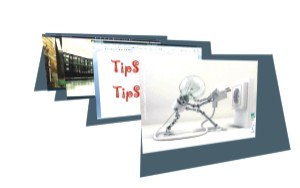|
Sci Tech

Syed Nadim Noah
 Computer is a crucial part of our lives. We need to use it on a regular basis every day for various reasons, be it sending just an email, attempting to finish the perpetual office work or, just for playing games and watching movies. It is indeed imposible to work on a computer filled with viruses, or one that seems to run at the speed of a rickshaw! Computer is a crucial part of our lives. We need to use it on a regular basis every day for various reasons, be it sending just an email, attempting to finish the perpetual office work or, just for playing games and watching movies. It is indeed imposible to work on a computer filled with viruses, or one that seems to run at the speed of a rickshaw!
Tip 1: Always keep an antivirus installed in the PC. In the modern era, the whole world runs on computers. There are millions of users everywhere. Not all users are good, criminals like hackers who are similar to thieves, stay on the lurk to collect vital personal information about anyone, whom they can successfully victimise by hacking into their respective PCs. Usually the victims are the financial institutions, and the stolen information tends to be credit card and bank account numbers. For home users, it is still wise to have an antivirus, as these viruses are like diseases for the PC. They cause your computer to act awkward and eventually stop their functionality. Typical sources of viruses are the internet, CDs/DVDs, flash disks and in rare cases, also the mobile phone. Thus, always remember to scan for viruses before putting anything new into your computer. Lastly, once a virus has already penetrated into your PC, there is no use of installing an antivirus to remove it as it will not help because the primary objective of a virus is to disable any antivirus or prevent their installation. Instead, reinstall Windows.
Tip 2: Try to remove any unnecessary icons from the desktop, as this greatly reduces the speed of your computer. In my computer for example, there is only two icons, one of them being the recycle bin.
Tip 3: Perform defragmentation from system tools at least once a month. It helps to increase your PC speed a bit further. Since, this usually takes a good amount of time, perform it before you are going to bed and it will surely be done by morning without you fretting about any wasted time.
Tip 4: Logon screens, boot screens and most importantly fancy themes for your Windows, will take a hefty toll on your PC's memory, or in other words RAM. So, if you posses a good enough computer with enough juice, meaning 1GB ram or above, you are good to go with the glitzy stuff. Otherwise, just stick to the classic theme.
Tip 5: Uninstall any programs you use rarely along with those that you don't use at all. This is due to the fact that, it puts pressure on your computer, as it has to register all of these programs in the registry and check them every time your PC boots. I think you all can do the math.
Tip 6: Delete all types of unnecessary data on your hard drives. It is best if you keep your important data, burned into DVDs or CDs, rather than keeping them stored in hard disks. Doing this will not only speed your computer, but also the longevity of your hard disks and save it from bad sectors which tend to form like paralysis on old ones. Remember a glass half-full of water is always better than one which is filled to the brim.
Tip 7: Set password protection for your PC, to defend it from unknown people, intruding/nosy/irritating friends and cousins. Children can also be a hassle, as they tend to press random buttons, eventually deleting your precious files.
Tip 8: Make sure you have the minimum amount of startup programs, at best three. Startup programs are the programs that start with Windows, like Windows Messenger, QuickTime, antivirus software's etc. They are one of the primary reasons your PC is delayed in commencing with normal tasks. Try to disable the programs you don't need to be started during Windows. This can be done from the options tab of individual programs.
Tip 9: It is wise to run a maximum of two programmes at a time, if your PC isn't capable of handling too much pressure. A lot of tasks at a time causes the PC to hang. Some tasks like games, conversion of audio/video should not at all be performed with other tasks. This tip is actually basic common sense, rather than tech stuff, so most of us may already be abiding by it.
Tip 10: My concluding tip is something which most of us avoid doing or we depend on someone else to do it. Clean all the parts of your computer, not only the monitor, regularly. The PC can be compared to a variety of things, including a car. A clean car performs hundred times smoother than an unclean one. Use soft dry cloth and if possible a blower to perform this “technical” operation. Try to do this yourself rather than depending on servants, as a bit of extra force exerted on these fragile parts may cause you to lose your valuable, mechanical friend.
.Copyright
(R) thedailystar.net 2008 |
|
